Categories
Archives
- June 2024
- May 2024
- July 2023
- May 2022
- March 2022
- February 2022
- November 2021
- March 2021
- May 2020
- April 2020
- March 2020
- February 2020
- January 2020
- December 2019
- November 2019
- October 2019
- September 2019
- August 2019
- July 2019
- June 2019
- May 2019
- April 2019
- March 2019
- February 2019
- January 2019
- December 2018
- November 2018
- October 2018
- September 2018
- August 2018
- July 2018
- June 2018
- May 2018
- April 2018
- March 2018
- February 2018
- January 2018
- December 2017
- November 2017
- October 2017
- September 2017
- July 2017
- March 2017
‘Parenting here means checking the ingredients of teargas’: my return to Hong Kong
‘Parenting here means checking the ingredients of teargas’: my return to Hong Kong
Emma-Lee Moss, who makes music as Emmy the Great, on life, new motherhood and her divided birthplace
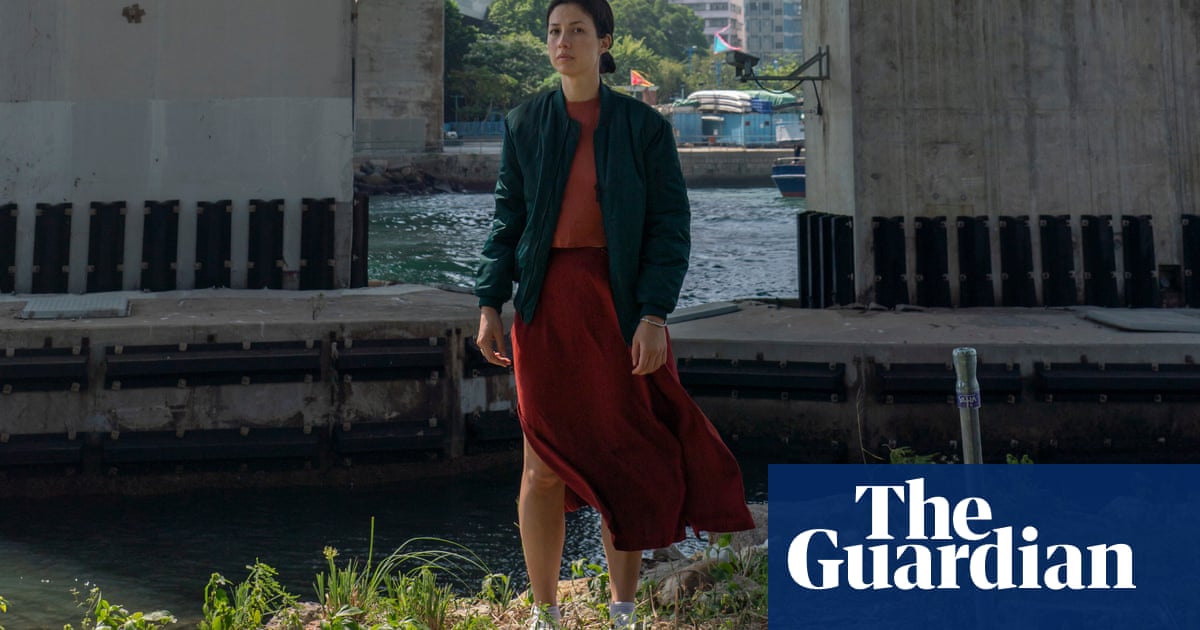
It feels as if the entire worlds press is there, standing on the pavement outside the Foreign Correspondents Club. Theyre in Hong Kong to cover the protests, but tonight, the Friday before National Day, theyre off duty. From the bottom of the hill, the bars of Lan Kwai Fong thrum reliably. There is an uneasy peace in the air, as though we all know that, three days from now, the long-running citywide demonstrations will reach a violent new apex.
Ive walked this route hundreds of times, and been a parade of different selves. Ive been a teenager trying to score 7-11 beer on the spot where Chungking Express was filmed. Ive been a visiting writer ordering drinks at the FCC bar. But now I am the mother and primary carer of a nine-month-old, and my time out has been negotiated. Quite frankly, I am dazzled by the world after 7pm. As I shuffle past the media crowd, I feel a pull, a yearning. In another life, Id be there with them. When I moved back to Hong Kong in 2018, it was in search of stories about the strange, convoluted city I was born in.
I take the lift up to a wood-panelled room and join a table of thirtysomethings wearing plastic flower garlands. I am expecting to be the main event tonight, at the reunion of my primary school class. For nine years, I was the only mixed-race person at my local Cantonese school, where I was known widely as gweimui (literally ghost girl). Chinese school is where I developed a lingering complex about not fitting in, and where, after being bullied, I fantasised that one day Id do something so momentous it would appear in a newspaper, and my classmates would see that I was more than just a girl with an English dad and a Hong Kong mum.
This thought was the founding brick of ambition that drove me to become a musician and writer, under the name Emmy the Great. Now my wish has finally come true, but with a caveat. I am at this reunion because someone saw an article about me in an arts magazine, but it wasnt about any of my albums, or projects, or anything Ive written. It was about what its like to have an English dad and a Hong Kong mum. Some 25 years later, this is still my most noticeable feature.
I look around the table, disoriented by faces I never expected to see again. Surely they will want to know about the amazing life I went on to lead! I prepare the necessary Cantonese vocabulary in my head. After we left primary school, I moved to East Grinstead, Sussex. In England, I wasnt a white girl any more. I was considered Chinese. In England, I had to assert over and over that I was British still do. But I was so grateful for the grass and open space that I accepted this identity. I never expected to be back here in Hong Kong, a gweimui once more. And, suddenly, Im a mother, too! I never sleep. I never go out. Im caught between expat and Cantonese culture. Im losing my mind, actually. How are you?
But despite a morbid obsession with the wrongs perpetrated on me by a group of 10-year-olds, I cant keep my thoughts from the topic of the moment. The city has been tense and uncertain since the first major demonstrations began in June, initially in response to a bill that would allow extraditions from Hong Kong to China, but now expanded to five demands, including universal suffrage and an independent inquiry into police conduct. Parenting has thrown up new challenges, like calling the council to ask for the ingredients of their teargas, and its effect on children. As each new weekend approaches, the population speculates. Will it be peaceful, or will it spill into violence? Will we wake to news that makes us tearful with pride for Hong Kong, or horrified by the scale of the escalation?
Tonight, as China gears up to celebrate its 70th year as a republic, there is no doubt about which way the news will swing. Someone at the reunion says they are boycotting products from the mainland, including tea. Another, a tiny boy who has inexplicably grown into an adult, says he wont use the MTR metro system any more, now that its been accused of enforcing the governments agenda by shutting down during protests. I spot an opening to admit that, the day the demonstrations began, I was in England, on tour. By the time I got back, teargas had become the stock police response, and my partner and I decided we wouldnt attend demonstrations in case we find ourselves incapacitated and unable to care for our daughter. Instead, I say nothing. I dont tell them, either, that we are planning to leave Hong Kong for England when our daughter turns one, because Im self-conscious about having one foot in Hong Kong, and one abroad. This is how its always been. Its how they remember me. And, ever since the protests began, I am wondering if it makes me a part of the problem.
***
I can only tell you what I remember. In 1994, Forrest Gump was the English-language film at every cinema for months. Every weekend, my parents would throw their three children into a Volvo and drive to Pacific Place, a mall in the Admiralty district. Wed meet our friends, expat families whose children went to international schools, at McDonalds, where the kids would climb the Ronald McDonald in the playzone, until we were allowed to go to the CD store and pick out an album. Everybody wore Nikes and had a favourite WWE wrestler and Street Fighter move.
In 90s Hong Kong, everyone could speak English, even taxi drivers like my Uncle Ron, who had crazy hair and had once cut a demo tape in a stoner-rock band. But my siblings and I spoke Cantonese, too. On the weekends that we didnt see our friends, we had dim sum with my mums family: Auntie Dora, Uncle Sam and Uncle Ron; my two older cousins, too, one of whom had recently taken a new English name, Michael Jordan Lee.
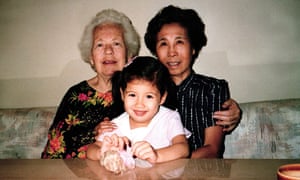
American basketball, Japanese anime, Oxbridge ambitions. In Hong Kong where the phrase east meets west is so overused that Ive seen it advertising a shampoo parlour for dogs you were at the centre of the world town, a place where global capitalist culture could run unfettered, dominating the rituals and quirks of the Chinese way of life. Watching over it all was benevolent, late-stage British colonialism; its influence seeped into everything, from the names of English lords on road signs, to the Chinglish that permeated the local Cantonese dialect. Hong Kongs last governor, Chris Patten, was vaguely popular, his final approval ratings still higher than any subsequent leader. It was China that we feared and felt distinct from, even as schoolchildren.
As the transfer of sovereignty in 1997 approached, the expat families began discussing their various plans to leave. Many had one parent who was from Hong Kong, and one from abroad. The handover was an obvious deadline to fulfil any ambitions of living in the other place, where you went to visit your grandparents. Our closest family friends went to Australia, Singapore, Germany and Texas. When the day came that the British flag was folded up, and the Peoples Liberation Army marched in, we were already scattered around the world, watching on TV while our mothers cried. I didnt see my best friends, Dan and Ash, again until I was 18. Today, when I text them images of Pacific Place filled with protesters, they joke: Forrest Gump tickets released again?
Looking back, its easy to view 1997 as a year of mass exodus from the city, a moment marked by the loss of foreign professionals (who are still inexplicably expats while other temporary workers are migrant workers). But to do that would be to ignore the vast majority of Hong Kong people, who are Hong Kong-born Chinese, speak Cantonese as a first language and were not offered British passports by the departing government. They include my uncles, my aunt, my cousins, my classmates. There are also the minority ethnic groups who are as rooted in Cantonese culture as Hong Kongers. For families like mine, the handover was an opportunity to start again. For those who stayed behind, it was the beginning of a period of uncertainty. The Basic Law a de facto constitution promised Hong Kong a high degree of autonomy for 50 years. This created, in principle, a liminal time between British and Chinese rule during which the question Who are we? became crucial and explosive.
In his book Generation HK, on the young Hong Kongers who came of age in the post-97 period, the journalist Ben Bland describes the end of British rule as leaving an identity vacuum. In fact, the end of the colonial era also left an opportunity for Hong Kongers to regroup, to allow Hong Kong-Chinese culture to lift itself from the shadows, and to look back and ask what of the citys history would be preserved, and protected, before it was absorbed into the mainland.
Today, you cant take a step without hearing the phrase: This is the real Hong Kong. It is a thought that emerges when you find yourself in an alleyway populated by street vendors selling milk tea from polystyrene cups; when the light begins to drop over Aberdeen harbour (in Cantonese, Little Hong Kong) and a fisherwoman steers her craft, one hand on her Samsung Galaxy; when teenage couples hold hands at the entrance to Ocean Park (real Hong Kong), the amusement park that was never defeated by the arrival of Disneyland (not real Hong Kong). It is an inescapable concept, as tangible as rain, all the more sweet for the fear that it will soon slip away.
For Hong Kongers today face inordinate pressure that goes beyond the cliff edge of 2047. The high living costs associated with its status as a haven for the wealthy have led to an ever-widening gap between rich and poor, which finds its most extreme expression in cage homes for those who cannot afford housing. Meanwhile, whenever Beijings influence creeps beyond the promises of the Basic Law, it throws up ambiguities in its wording. The effect is like gaslighting: are we crazy? Or are our freedoms being eroded?
The quest for post-colonial identity is something that lured me back to Hong Kong in late 2017. That spring, I had spent a month in Xiamen as part of a British Council scheme, and the effort to communicate in Mandarin (which, it turns out, I dont speak), had somehow unlocked all the Cantonese Id stored up from my childhood. I was dreaming in Cantonese, and felt a longing to be back in Hong Kong, to see the lanterns at the Mid-Autumn festival.
My parents, sister and nephew had been back in the city for some time. As well as this, there was a person. While in transit from Xiamen, I had met a British artist who worked at one of the international galleries. We had bonded over our scattered thirties and our love of English woodlands. That Mid-Autumn, we began an adventurous period of walking through the city at twilight, the time when the light bounces off the buildings like mermaid scales in the wind.
It was three years since the Umbrella Revolution and Occupy Central. Youd be forgiven for thinking that the civil unrest had dissipated. Instead, I sensed a defiance in Hong Kong and linked it to the arts. Venues had been shut down by strict building regulations, and lifestyle restrictions that made earning money from music almost impossible, and yet, as the indie DJ Wong Chi Chung told me, there were more than 800 indie bands based in Hong Kong. Improvisation was key: wall murals around unexpected corners, rooftop farms, pop-up art spaces in old factories. It was a place fighting to find itself, asserting its right to be. It was increasingly where my heart belonged.
In January 2018, I decided to return to Hong Kong. My flight arrived in March. Forty weeks later, my partner and I checked into the hospital where I was born, and I gave birth to our daughter.
***
Does anyone feel that the citys flaws are their own fault? This is the question that nobody throws me in the support group for women with postnatal depression and anxiety; in the free playgroup run by friendly septuagenarian churchfolk; in the parenting WhatsApp groups and in the void of the mums Facebook pages where I have stooped to scrolling for hours through ads for baby products.
Some 18 months after I arrived in Hong Kong, my quest to understand it has mutated into something terrible. Its the not-sleeping that did it, I think. Or those submerged infant memories that suddenly appear in your thoughts when youve just had a baby, disorienting enough without the realisation that youre unexpectedly in the place where you spent that infanthood.
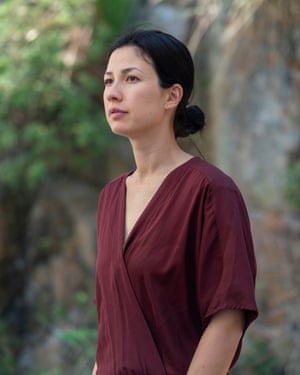
I remember bumping into a friend in London, who had just had a baby and was moving back to Finchley, where she grew up. Finchley, shed groaned, like Persephone on her way to suburban hell. Now I know how she felt. You are my Finchley, I scream at Hong Kong, silently.
On a babys schedule, you are stripped of the things that make you who you are. Hong Kong, which should feel familiar but doesnt, contains none of the touchstones I need as my identity slips into the blank of what the poet Liz Berry describes as feedingcleaninglovingfeeding. I look around and see my first home with the bleakest gaze. I see pollution that threatens my babys lungs and stops us going outside for days. I see expensive housing that drew us to an industrial estate in the middle of nowhere, where our route to the playground takes us through a construction site and past a sewage treatment plant. I place my family in this picture. Were we and the others who left not the prime beneficiaries of the sunny 90s, before unfettered capitalism and political change took its toll? Every time we fly away, we are opting out of the consequences.
In this new, dark Hong Kong, my uncles are gone, having both passed away while we were in England. No sweet Uncle Sam, nor Uncle Ron in his emerald green taxi. In motherhood, I come up against uncomfortable aspects of the culture I shared with them. There is the cultural obsession with postpartum weight loss, which leads a nurse to praise me when I lose too much weight in the first week of breastfeeding. There are the rigid ideas of what motherhood looks like: installing an art piece I worked on with the data journalist Mona Chalabi, my two-week-old in her sling, the technician tells me that I should be at home, in confinement. Yet, when I hear expats complaining about such difficulties, I am angry. I cannot let myself relate to them; it feels like cheating on my relatives. In the space between my two demographics, I see how divided the city can be. There are gulfs of language, gulfs of experience. Varying privileges are doled out according to nationhood.
In the 20th weekend of protests, graffiti appears on the mountainside: If we burn, you burn with us. My writers brain sees how Hong Kong and I are in tune. We know how pressure can take a search for identity and turn it into a full-blown identity crisis.
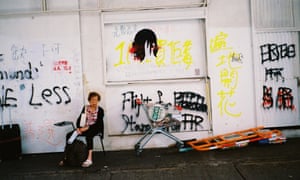
In early November, a student dies from injuries sustained while falling from a car park in unexplained circumstances. In the eruption that follows, there are no easy conclusions left. Protest schedules are abandoned, school is cancelled. There is no playgroup. There is no support group for women with postnatal depression and anxiety. The total number of teargas canisters fired reaches 10,000. My partner is teargassed stepping outside his office in the day, to check if the street is safe for his colleagues. Universities become battlegrounds. At the Polytechnic University, schoolchildren are among those caught inside the campus for days when the police seal off the exits. Then pro-democracy candidates win a landslide majority in district council elections, and there is a respite from conflict. As new councillors get to the urgent task of freeing the final Poly U students, the city wonders what else this national mood will achieve.
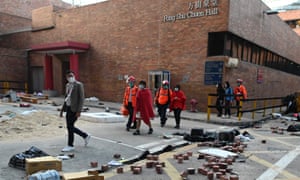
In the midst of this, my time in Hong Kong is drawing to an end. I reflect on everything it has meant, this second time around. This precious time with my parents, the answers to old questions. My relationship and my daughter. In the rawness of new parenthood, and the chaos of the last few months, I almost missed the gifts that Hong Kong gave me, the healing it offered. Even in these awful times, there is a sense of the possibilities in community my old schoolfriends and I are no longer distant in our communications. We have become just another group of parents worried about the rumours of harmful chemicals in the teargas.
Ive learned here that you dont know if people or places will return to your life. You also dont know when they wont; I thought Id make a final visit to the village where I grew up, but its next to the Chinese University in Shatin, the site of another major conflict between students and police. I guess this is the fear that follows everyone in Hong Kong today. When the smoke clears, what, if anything, will remain intact? In this place of many lives and many rulers, how many times must we say goodbye?
If you would like a comment on this piece to be considered for inclusion on Weekend magazines letters page in print, please email weekend@theguardian.com, including your name and address (not for publication).

